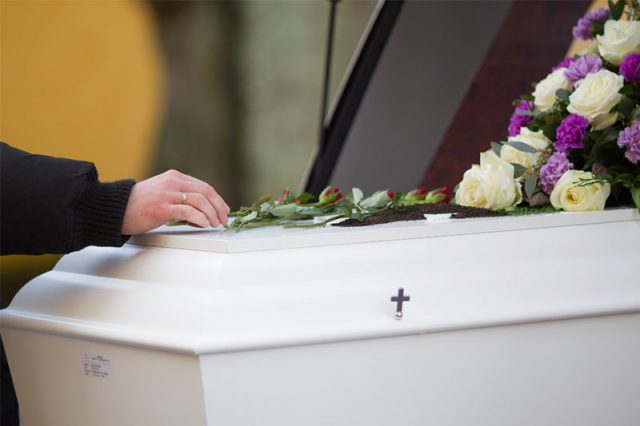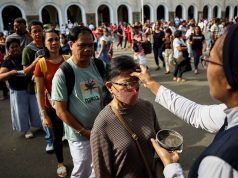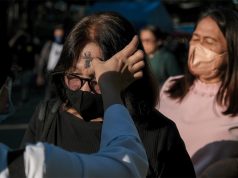The Archdiocese of San Ferdando‘s Office of Exorcism suggested an alternative practice for Catholics observing “pagpag” after attending a wake or a funeral.
The office on October 20 released an infographic about the superstition and suggested that the public offer a “cleansing” prayer instead, which it provided.
Heavenly Father, in the Name of Jesus Christ our Lord and Savior, by the power of the Holy Spirit, we pray that the cleansing power of the precious blood of Your Son come upon us right now.
Purify us and wash us clean with the blood of Jesus from the top of our heads down to the very soles of our feet.
Let this blood penetrate the very marrow of our bones to cleanse us from any entanglement from whatever spirit we have come in contact with during the course of our intercession.
Anoint us with the gifts of the Holy Spirit and refresh our body, soul, and spirit; and may the sign of Your Holy Cross (✠) drive away all evil spirits from us.
The provincial exorcism office described “pagpag” as the “practice of not going directly to one’s house when coming from a wake or a funeral.”
“The superstitious belief is that the mourners picked up an evil spirit or even the spirit of the dead person when they attended the wake or funeral. Hence, by going to another place other than one’s habitation, the spirit is left behind in the transitory place like a park or restaurant,” it added.
The exorcism office said that the practice “does not make sense at all.”
“As if one can outsmart the spirits,” it commented.
The exorcism office said the practice is “idolatrous” as it “brings a person to fear a spiritual or invisible being other than one true God.”
“Pagpag” literally means the act of shaking off dust or dirt.
In the context of Filipino superstitions, it refers to shaking off spirits (evil ones or the spirit of the deceased) by going someplace else instead of heading home after a wake or funeral.
The belief, according to historian Ambeth Ocampo, dates back to pre-Spanish times.
It is done to supposedly prevent evil spirits or the deceased from following you back home.
Convenience stores, which run 24 hours a day, are the usual places visited by funeral or wake attendees for the “pagpag.” Others visit malls or commercial establishments.
Meanwhile, the exorcism office also released an infographic about superstitions in general, calling it “the deviation of religious feeling and of the practices this feeling imposes.”
“It can even affect the worship we offer the true God, e.g., when one attributes an importance in some way magical to certain practices otherwise lawful or necessary,” it added, citing the Catechism of the Catholic Church.
“To attribute the efficacy of prayers or of sacramental signs to their mere external performance, apart from the interior dispositions that they demand, is to fall into superstition,” the exorcism office further said.
Experts said that people engage in superstitions as it “provides a sense of control and reduces anxiety” for them, among others.
“What all this shows is that superstitions can provide reassurance and can help to reduce anxiety in some people. But while this may well be true, research has shown that actions associated with superstitions can also become self-reinforcing — in that the behavior develops into a habit and failure to perform the ritual can actually result in anxiety,” an article from The Conversation reads.










